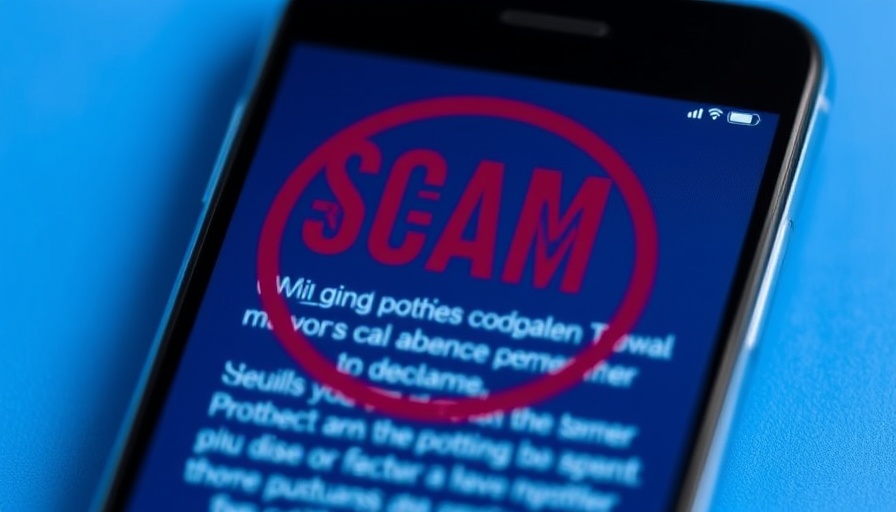
Beware of DMV Scam Texts: What You Need to Know
In today's digital age, scams are alarmingly prevalent, and one of the latest traps involves threatening text messages purporting to be from your local DMV. These fraudulent texts can alarm even the most savvy individuals by claiming you have unresolved issues, potentially leading to dire consequences like license suspension. Understanding how to discern a scam from a legitimate communication is essential for protecting your personal information and financial well-being.
Understanding the DMV Scam Texts
The text messages reported often convey alarming messages about unaddressed problems with your driving record. Scammers often utilize fear tactics to compel recipients into taking hasty actions. According to experts, these messages typically highlight threats of license suspension or fines, and they may provide links to misleading websites designed to extract personal financial details.
Identifying Red Flags in Scam Texts
Recognizing the characteristics of questionable messages can keep you from falling into the scammer's trap. Here are key signs to watch for:
- Source Verification: If the text claims to be from your state’s DMV, always cross-check by visiting the official DMV website or contacting them directly.
- Threatening Language: Be wary of threatening verbiage regarding enforcement actions or fines. Legitimate DMVs do not issue payment demands or violations through text messages.
- Suspicious Links: Genuine organizations will not ask you to enter sensitive information via unsecured links sent via text.
- Inconsistencies: Check for spelling errors or odd phrasing which often indicate a scam.
What to Do If You’ve Already Engaged
In the event that you've interacted with these scam texts, prompt action is crucial. First, contact your bank to alert them about potential fraudulent activity. This allows them to safeguard your accounts against unauthorized transactions. Additionally, keep an eye on your financial statements for any suspicious activity and consider freezing your credit to prevent identity theft. Reporting the incident to law enforcement and the Federal Trade Commission at reportfraud.ftc.gov can also assist in capturing these scammers.
Broader Implications: Why This Matters
Scams like these not only affect individual victims but also strain resources in law enforcement and consumer protection agencies. Understanding and sharing knowledge about these deceptive practices helps foster an informed community capable of resisting and reporting malicious actions.
Conclusion: Stay Vigilant and Protect Yourself
As residents navigate the complexities of driving regulations and vehicle registrations, it is imperative to stay vigilant against scams. Knowing how to spot suspicious communications empowers consumers—allowing them to protect their financial interests. As a homeowner interested in DIY projects or home maintenance, ensuring your safety goes beyond home repairs; maintaining secure personal information is equally critical in today's interconnected world.
In this age of information, knowledge is your best defense. If you receive any text messages that seem dubious, validate their authenticity. It might save you a significant amount of trouble down the road.
 Add Row
Add Row  Add
Add 



Write A Comment